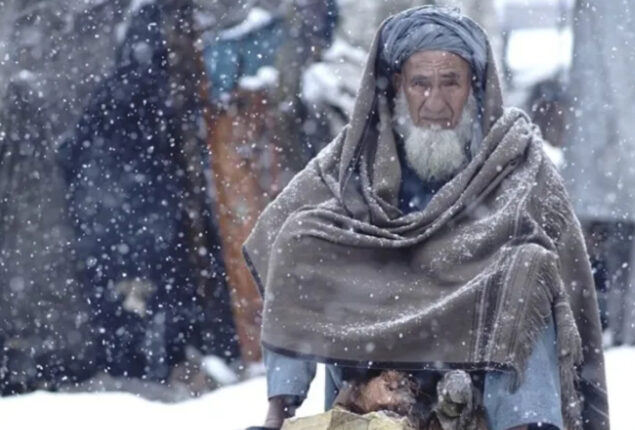Russian Envoy on Afghanistan discusses regional peace with Khar
Russian Special Representative on Afghanistan Zamir Kabulov reached Islamabad He called on...

Death toll in Afghanistan cold snap rises to 166
KABUL: At least 166 people have died in a wave of severely cold weather sweeping Afghanistan, an official said Saturday, as the impoverished country was wracked by natural disasters.
Since January 10, Afghanistan has been frozen by temperatures as low as -33 degrees Celsius (-27 degrees Fahrenheit), mixed with heavy snowfall, ice gales, and frequent power outages.
Before the cold snap, aid agencies warned that more than half of Afghanistan’s 38 million people were starving, and nearly four million children were malnourished.
The crisis management ministry reported on Saturday that the death toll had grown by 88 in the previous week to 166, based on statistics from 24 of the country’s 34 provinces.
The deaths were caused by floods, fires, and gas heater leaks used by Afghan families to heat their houses, according to ministry official Abdul Rahman Zahid in a video statement.
Over 100 homes were demolished or damaged, and nearly 80,000 animals died in the cold, a critical commodity for Afghanistan’s poor.
The World Health Organization (WHO) announced this week that 17 people had died in a single village in northeastern Badakhshan province as a result of an “acute respiratory infection” outbreak.
“Harsh weather prevents aid from reaching the area,” according to the WHO.
Afghanistan is in its second winter since US-backed forces retreated and the Islamist Taliban reclaimed power in Kabul.
Foreign help has plummeted since then, and the US has confiscated critical central bank assets, exacerbating what is often regarded as the world’s greatest humanitarian disaster.
Last month, the Taliban leadership prohibited Afghan women from working with humanitarian organizations, forcing many to halt activities.
Women NGO workers in the health field were then granted exemptions, and some organizations were able to resume their programs.
Catch all the World News, Breaking News Event and Latest News Updates on The BOL News
Download The BOL News App to get the Daily News Update & Follow us on Google News.